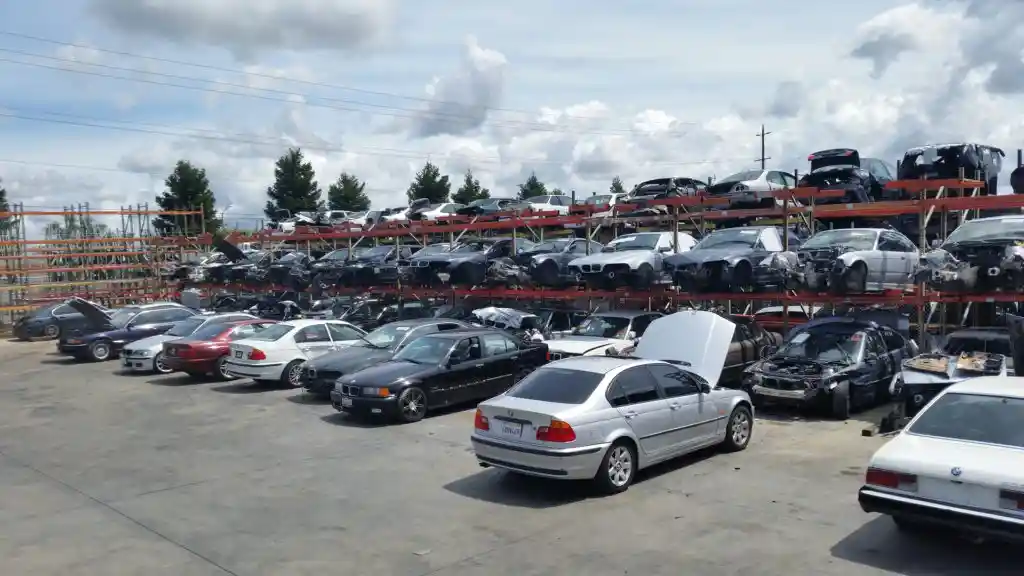One of the automotive industry’s best-kept secrets is that when a vehicle dies it lives on for many more years in wrecking yards, also known as auto dismantlers. There are two types of wrecking yards; those that offer full-service and those that are self-service.
The former requires expert personnel to remove and save everything that is usable for refurbishing. This is not always possible, though.
Job description
An auto dismantler works with old and damaged vehicles to salvage parts for resale. They work on cars with various power tools, such as saws and pneumatic wrenches. This is a challenging job that requires attention to detail and physical strength. Typically, an automotive dismantler works in a noisy environment and may be exposed to dust and other contaminants.
In California, dismantlers and scrap processors are required to register with the Department of Motor Vehicles. However, unauthorized dismantlers often ignore environmental, insurance, and tax regulations. The state’s DTSC has launched a campaign to stop unlicensed chop shops and other illegal activities. The department encourages people to report suspicious car recycling activity to the DTSC by using the online complaint form.
A dismantler’s duties include taking apart a vehicle and placing the reusable parts into inventory. They also clean the work area and prepare it for shipping. In addition, they work with a variety of workshop tools and have a high level of expertise and knowledge about automobiles.
Depending on the type of vehicle, dismantlers often remove the engine and transmission and other components for resale. They may also remove the light assemblies (such as headlights, blinkers, and taillights), seats, air conditioning systems, mirrors, hubcaps, and more. In some cases, they may even reassemble the entire body of the vehicle for sale.
Salary
If you’re interested in a career as an auto dismantler, you may be surprised to learn that the salary varies widely. New recyclers usually start at the minimum wage, while experienced ones can earn up to $25 per hour. However, some employers offer higher wages to attract and retain the best employees. Those who work in large salvage operations typically pay more than those working at smaller independent sites.
In California, the DTSC’s Scrap Vehicle Strike Team investigates and prosecutes illegal junkyards. It also operates an online complaint form for anyone who suspects a company is violating environmental, insurance, and workplace safety laws. The strike team’s success story is a result of state Assembly Bill 1858, which authorizes the DTSC to collaborate with other agencies to combat illegal dismantling activities.
While there are no specific education requirements for becoming an auto dismantler, most employers prefer applicants with a high school diploma or GED certificate. The job involves manually removing parts, so you must have the physical ability to handle these duties. You must also be comfortable working in a noisy and dirty environment.
The salary for this career varies by location, but most dismantlers make at least the national average of $44,787. In the top 10 cities, Sunnyvale, CA leads the way with an average of $47,417. Livermore, CA and Vacaville, CA are close behind in second and third place respectively.
Requirements
If you’re thinking about becoming a vehicle dismantler, there are a few requirements you need to meet. First, you’ll need to obtain a business license. Most states require a license for businesses that deal with salvage, junkyards, or dismantlers. You’ll also need to comply with environmental, insurance, and tax regulations. Lastly, you’ll need to have a location that’s suitable for sales and storage.
In addition to being licensed, you’ll need to have a valid NMVTIS ID number. This is a unique identification number that’s provided by the administrator of the NMVTIS. If you don’t have a NMVTIS ID number, you can apply for one online.
Another requirement is a vehicle dismantler surety bond. These bonds are used to ensure that you’ll comply with state and federal laws regarding the disposal of waste parts from vehicles. They also protect the public from being exposed to potentially hazardous substances.
Vehicle dismantlers are a vital part of the recycling industry, but too many unlicensed chop shops ignore environmental, insurance, and tax regulations. If you’re aware of a business that is violating these regulations, please report it using the Department of Motor Vehicles’ online complaint form. You can also purchase a Business License Compliance Package (BLCP) from DMV that contains every application, schedule, and document you need to be licensed as an auto dismantler in the city of New York.
Job outlook
In the United States, an estimated 11 million vehicles are dismantled each year. These are taken apart by auto dismantlers, who use workshop tools to separate and sell parts. Most dismantlers earn at least minimum wage, but those with managerial skills or who run their own salvage business can earn more. The job outlook for an auto dismantler is good due to a growing demand for recycled parts. However, the job can be demanding and requires a lot of physical labor. It is important for those seeking this career to have the ability to work in various weather conditions – rain, snow and cold – for a full shift.
Many of the parts removed from a car are sold to auto-parts companies that will rebuild them and resell them in used condition with a warranty, while others are sold directly to consumers. In some cases, large junkyards will rebuild and sell the components themselves.
One of the biggest advancements in auto recycling is a machine called the Kobelco Auto Dismantler. This machine allows dismantlers to extract much more precious metal from cars. It also helps to increase the profit margins of auto-parts retailers. Anyone who suspects someone of illegally dismantling cars should report them to DTSC using the online complaint form. California also recently passed Assembly Bill 1858, which authorizes DTSC to collaborate with other state agencies in combating unlicensed “chop shops” that ignore environmental, insurance, and workplace safety regulations.
